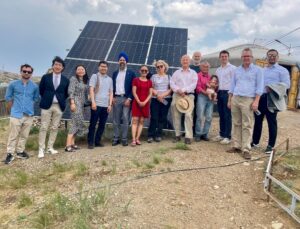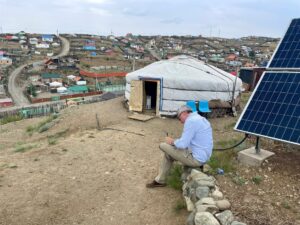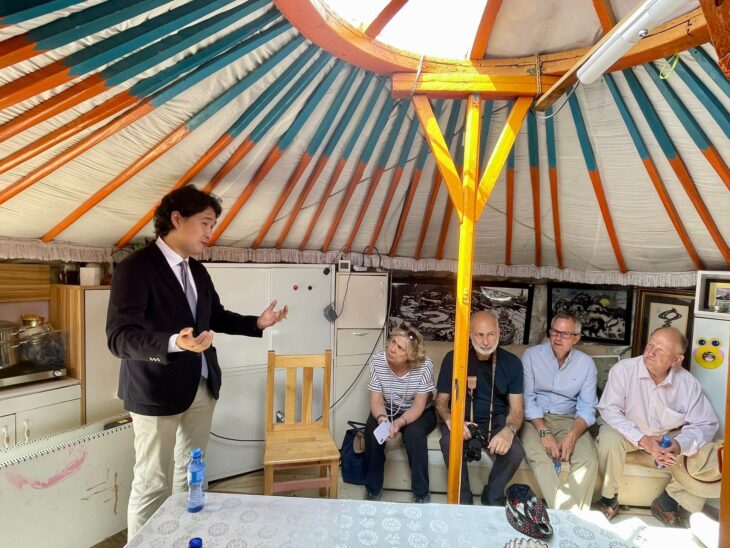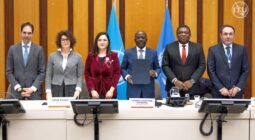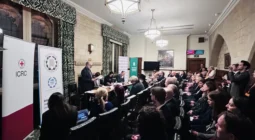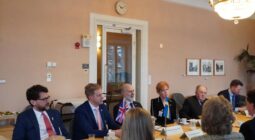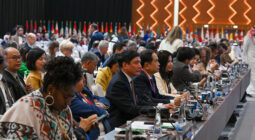

URECA Project in Ulaanbaatar: cleaner air, carbon credits & community benefits
The digital thermometer indicated 34 degrees in the ger (a traditional home typically used by nomadic Mongolian people) district in Ulanbattar on a hot summer’s day, a far cry from the -35 degree temperatures experienced in the winter. To keep warm in the coldest capital in the world many families – half of whom are displaced families and former rural herders – burn coal to survive.
But the dirty emissions released cause real problems. 70-80 per cent of Ulanbaatar’s air pollution is caused by household coal use and children living in the area have 40 per cent lower lung function compared to children breathing unpolluted air. Air pollution routinely increases to 27 times the WHO’s safe limit.
So the need for change is clear. As part of the IPU delegation, we were visiting the ger district in the hills above the capital to meet one of the families – a mother and her daughter who live next door to her retired father – taking part in the “Coal to Solar” project aiming to move away from burning coal and to significantly reduce emissions and improve air quality.
As Amar Baatartsogt the Chief Operating Officer from URECA explained, the project is a collaboration between URECA a Mongolian led start up, the UN Development Programme in Mongolia, the Asia Foundation, Ger Hub NGO, Ulaanbaatar City and the Mongolian Ministry of Environment. Its aim is to transform how households in the ger district access clean energy and improve public health.
The concept is simple. URECA provides solar panels, batteries, and electric heaters, along with insulation to families to provide sustainable heating and energy so they don’t need to burn coal (some poorer households burn plastic and other waste products).
Following a successful pilot phase around 200 families are participating in the scheme and wider rollout is underway, targeting 1,000 gers over four years. So far the results show that each household involved in the scheme reduces up to 15 tonnes of CO2 emissions a year, cutting energy costs by up to 70 per cent.
This measurement of CO₂ reductions is critical as the initiative is designed around carbon credits and market mechanisms. Carbon markets have suffered from issues with trust and accusations of greenwashing. To ensure the veracity of its investments, URECA uses digital measurement, reporting, and verification technology and smart meters to accurately report data. It is applying for official accreditation for the scheme.
By generating emissions reductions, these can be sold as carbon credits (credits could be worth around $80/tonne) to fund the scheme and help support families making the transition. This financial return is essential to making carbon markets more transparent and accessible through technology. Fundamentally it builds trust that carbon offset schemes are delivering savings.
The benefits for residents are clear and important – from health improvements to cheaper fuel costs, as well as empowering participants.
By blending technology and markets, this project has great ambition to deliver improved air quality and quality of life as well as providing a financial return by transitioning families from coal use to solar-powered heating.
The family we met were enthusiastic proponents of the scheme and the change it has made to their lives. They were proud to be in the vanguard of this change and told us of the considerable curiosity from neighbours and other residents about the project. So the concept has been proven but to make a real impact on the smog like scenes of London in the 1950s will require major uptake.
All members of the delegation encouraged the engaging and motivated URECA team to keep going on expanding their project as the potential is huge and inspiring.
